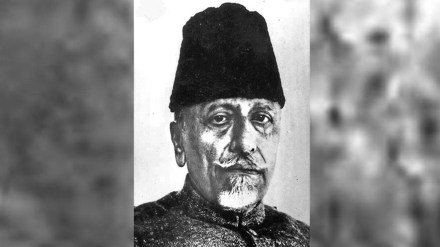India’s first education minister Maulana Abul Kalam Azad, was born on November 11, 1888. In his honour the country observes National Education Day every year on this day. While remembering him, the country also remembers his various contributions for the country as also education.
Apart from being a great educationist, Azad was also a well-known poet, writer and a journalist. Here are some of the points that you must know about the great son of the soil.
Also read: Effective interventions increased enrolment drive in J&K, says Manoj Sinha
1) After being appointed as India’s first education minister post independence, he played an important role in national education policy.
2) Kalam was appointed as the youngest president of the Congress at the age of 35 in 1923.
3) He was appointed as the president of the party twice in 1923 and 1940.
4) Before being the Congress president, he also served as member of Congress Working Committee and general secretary of the party.
5) In 1912, he published an Urdu weekly called “Al-Hilal”. Through this he used to criticise the polices of the British Government.
6) Kalam was also against those political leaders who ware focussed on communal politics rather than loo,ing for the development of the country.
7) He was honoured with Bharat Ratna posthumously in 1992.
Also read: National Education Day: Changing course, transforming education
8) He was opposed to the creation of Pakistan, and was hugely disappointed after it became a reality.
9) He was appointed as member of the foundation committee in 1920 to establish Jamia Millia Islamia in Aligarh.
10) Kalam also played an important role in shifting the university to New Delhi from Aligarh in the year 1934. The main gate of the university now named after him.
11) As an education minister, he focussed on the education of rural boys and girls.
12) He also played an important role in establishing the Department of Education of the University of Delhi, India’s first Indian Institute of Technology in 1951 and the University Grants Commission in the year 1953.
